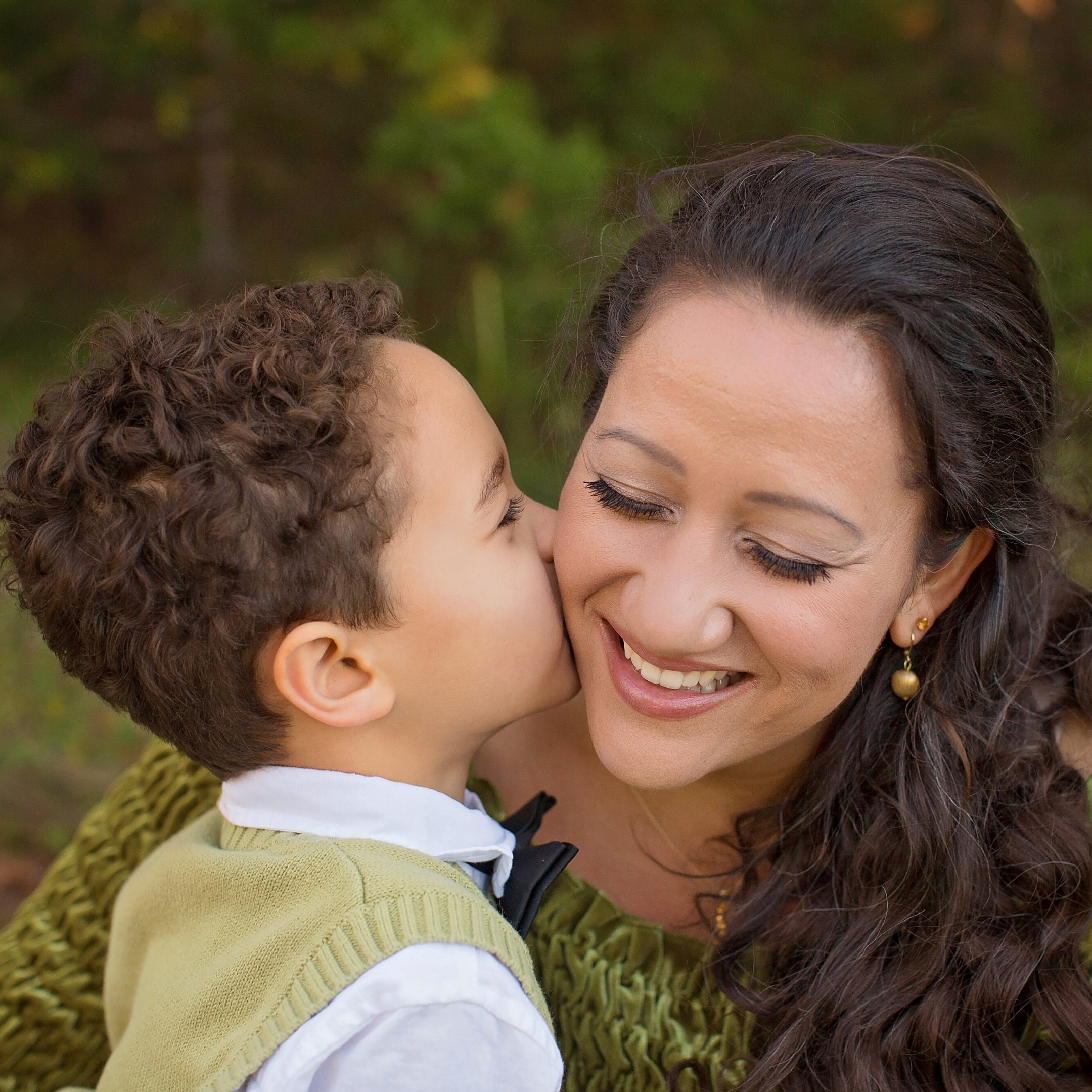
One evening, while taking a walk with my daughter-in-law, I laughingly said, “You know sweetheart, you can thank me for your great husband, because I told him when he was a little boy that if he learned how to be intimate and in touch with his feelings, he would have a happy wife and a happy life.” My daughter-in-law laughed, but then seriously looked me in the eyes and said, “Mom, it worked.”
Research tell us that mothers have a huge effect on the way their sons develop. The first relationship your son will ever have is with you. Studies indicate that a well-bonded child does better academically, emotionally, behaviorally, and demonstrates resistance to peer pressure. On the other hand, children who do not experience such a strong central bond, often grow up feeling depressed, anxious, and aggressive. In fact, the best inoculation against dangerous criminal behavior, drug and alcohol abuse, gang activity, and irresponsible or underage sex, is a strong bond with mother.
It is emotional intelligence that a mother teaches her son, which ultimately ensures that he can not only understand his own feelings, but he can also be insightful, empathetic and compassionate to others. This gives him a great edge towards a successful life. If your son can manage his own feelings, while relating to and managing those of others, he has the opportunity to become a leader of both men and women, whether at work or at play. Your son’s conscious self-control may help ensure academic achievement, while fostering independence and individuation.
By imparting your own sense of self and values onto your son, you are preparing him for all future relationships, especially those with his future love interest. For example, if you value yourself, you will value your son. If you value your son, he will value himself, and by extension, others. This builds not only good self-esteem, but self-respect and self-worth. So, if you invest in your son emotionally, not only will you make him feel validated, valued, and important, but he will also be able to transfer those feelings back to you, as well as out toward others. This is the way you open a space to teach your son the power of intimacy, which ultimately leads to happiness in all relationships.
Even into late adolescence, your son needs emotional support from you. He still needs and wants that hug and kiss on his cheek, that restores a sense of well-being, no matter what’s going on in his life. This kind of emotional connection helps support his emotional health, reducing the potential for free-floating anxiety and depression. By modeling for your son the importance of being in touch with his feelings and emotions, you are actually preparing him for his future as a friend, partner, husband, and father.
Show me a successful man, and I’ll show you a controlling mother. Success and leadership require the ability for self-control and conscious individuation. When your son is little, his first love attachment is you. He may even fantasize about marrying you when he grows up. And if he was breastfed, you were his first sexual experience. But ultimately, as Freud tells us, at around seven-years of age, your son enters the phase of latency, and now his inner dialogue confirms that he can’t compete with dad for you, so he must look elsewhere. At this point, a mother often detaches from her son too early, wanting him to bond with father. But, it’s important to stay engaged, so that you can help your son successfully separate from you while you guide him from latency to adolescence, which occurs at about 12-years of age. It is here that your son will transfer all that you’ve taught him about emotional intelligence, and focus it towards another.
This healthy transfer of affection helps your son grow into manhood, where he can now take control of his own life, rather than be influenced by either parental control or peer pressure. By staying connected to your son, and in constant communication with him, you foster his emotional intelligence. This will give him the skills needed not only for communication, but also for the courage and ability to choose his future – whatever that is.
So, in the final analysis, as a mother, consider what a wonderful gift you gave your son by making him a “mama’s boy.” From his infancy, your close bonding informed him about the world, encouraging his emotional IQ, and by creating and modeling intimacy, you taught him how to recognize and articulate his feelings, while attuning to those of others. By making your son emotionally strong, you gave him the capacity to avoid risky adolescent behavior and the influence of peer pressure. And, your strong-mother son relationship, helped him to resist tough masculine stereotypes. As a result, instead of fighting and acting macho to prove his masculinity, your son kept the door opened for skilled communication and connection with others… in all situations, whether social or work. And because of you, he has better friendships and more intimate relationships, which can help lead him towards a happy and healthy life.
So, even if your own childhood was conflicted, and your relationship with your mother damaged, you can consciously choose to not repeat, or be compelled to repeat, those early patterns. This will keep you from projecting those patterns onto your own child. Then, you can be the ideal parent that you want to be. I salute you, while you give yourself a pat on the back.

